Your (Ridiculously Easy) Financial To-Do List
Rein in spending, get saving and build security with Suze's take-control plan.
By Suze Orman

Illustration: David Wyffels
Why It's Important: You know the big-ticket expenses in your life, but all the smaller spending can also be a killer. Take a look at your monthly outflow, and I guarantee you will have a few "Yikes, I had no idea" moments.
Do This Now: Gather up your bank and credit card statements. Then go to my website, SuzeOrman.com, and click on Suze Tools to find the expense tracker. Input your average monthly expenses, and get honest about where your money is going.
Do This Now: Gather up your bank and credit card statements. Then go to my website, SuzeOrman.com, and click on Suze Tools to find the expense tracker. Input your average monthly expenses, and get honest about where your money is going.
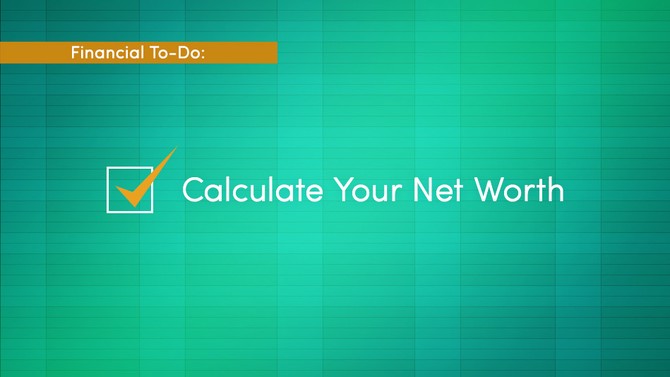
Illustration: David Wyffels
Why It's important: We tend to focus on assets and forget about debts. Financial security requires facing up to the big picture: assets minus debts.
Do this now: Type "net worth calculator" into any search engine and you will find plenty of free online tools to help you take stock of your assets and debts.
Do this now: Type "net worth calculator" into any search engine and you will find plenty of free online tools to help you take stock of your assets and debts.
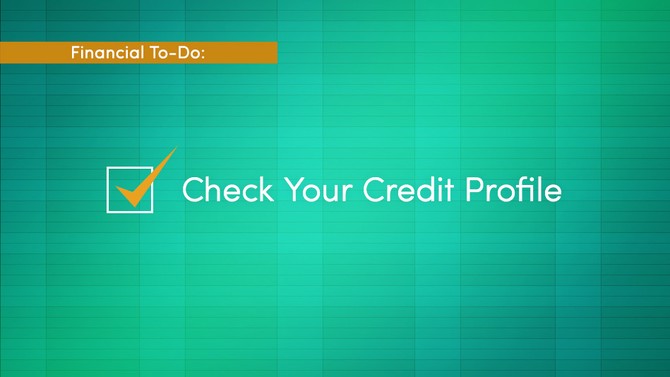
Illustration: David Wyffels
Why It's Important: Your credit score affects the interest rates you're offered on credit cards and loans, can be used to vet your job application, and in some states may influence your insurance premiums. So your credit reports, which determine your FICO score, need to be up-to-date and correct (mistakes abound). A score in the mid-700s (the range is 300 to 850) earns you a gold star.
Do This Now: Go to AnnualCreditReport.com to get your free credit reports from the three credit bureaus: Equifax, Experian and TransUnion. Every year, you are entitled to one free report from each. If a site asks for your credit card to receive a report, you're at the wrong place! Scour your reports for mistakes, and follow the directions for filing a dispute. Once corrections are made, go to MyFICO.com to buy your FICO credit score. You may receive offers for free credit scores. They are knockoffs of the real deal—your FICO score is what most lenders and businesses check. It costs $20 to see your FICO score; with so much on the line, that's a small price to pay.
Do This Now: Go to AnnualCreditReport.com to get your free credit reports from the three credit bureaus: Equifax, Experian and TransUnion. Every year, you are entitled to one free report from each. If a site asks for your credit card to receive a report, you're at the wrong place! Scour your reports for mistakes, and follow the directions for filing a dispute. Once corrections are made, go to MyFICO.com to buy your FICO credit score. You may receive offers for free credit scores. They are knockoffs of the real deal—your FICO score is what most lenders and businesses check. It costs $20 to see your FICO score; with so much on the line, that's a small price to pay.
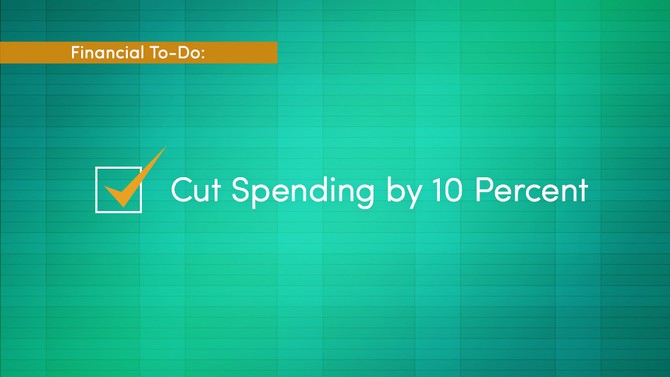
Illustration: David Wyffels
Why It's Important: The median pay raise for 2015 is expected to be around 3 percent. So challenge your family to give your budget a 10 percent raise by cutting your spending 10 percent.
Do This Now: Once you input your income and outflow into the Expense Tracker on my website, print it out and circle every expense that is a want (not a need), then figure out how to reduce or eliminate it.
Do This Now: Once you input your income and outflow into the Expense Tracker on my website, print it out and circle every expense that is a want (not a need), then figure out how to reduce or eliminate it.
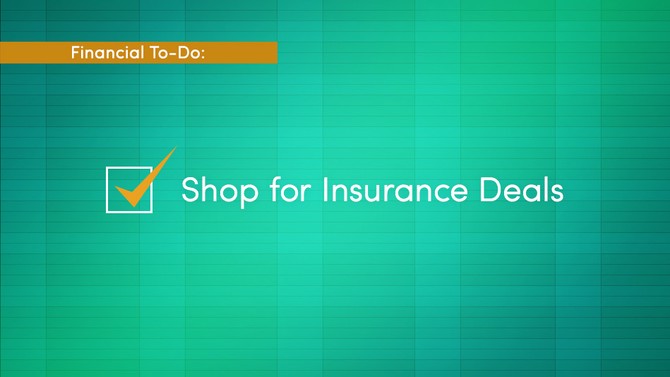
Illustration: David Wyffels
Why It's Important: You're always looking for the best prices—why not on home and auto insurance, too? You're nuts if you don't comparison shop for auto insurance; you could save 10 percent or more. (But don't reduce your level of coverage. You want the right coverage for the best price.)
Do This Now: Go to InsWeb.com and NetQuote.com to find premium quotes from a variety of home and auto insurers. (For auto quotes from Progressive and GEICO, go to their websites.)
Do This Now: Go to InsWeb.com and NetQuote.com to find premium quotes from a variety of home and auto insurers. (For auto quotes from Progressive and GEICO, go to their websites.)

Illustration: David Wyffels
Why It's Important: Low deductibles of $250 or so can entice you to make claims for small-ticket items. Do that too often and your insurer may boost your premium or boot you completely. And there's a nice payoff for a higher deductible: Raise your auto and home deductibles to $1,000 or more and your premium cost falls at least 10 percent.
Do This Now: Call your current insurer and ask for a new quote based on a higher deductible. (But do this only if you have an emergency savings fund that can cover the cost of the deductible.)
Do This Now: Call your current insurer and ask for a new quote based on a higher deductible. (But do this only if you have an emergency savings fund that can cover the cost of the deductible.)
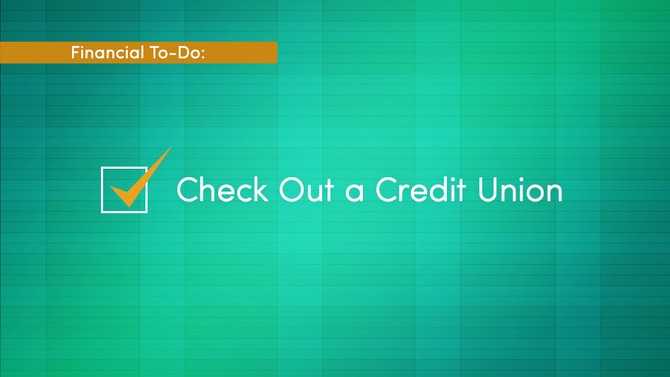
Illustration: David Wyffels
Why It's Important: Credit unions are often a better deal than banks and tend to pay higher yields on deposits.
Do This Now: Go to ASmarterChoice.com and look for one that is part of the federal insurance program run by the National Credit Union Administration (go to MyCreditUnion.gov and click on Protect Your Finances, Share Insurance Coverage to check). Coverage is the same as at an FDIC bank—$250,000 per person per credit union is fully insured, and additional coverage is based on the types of accounts you hold.
Do This Now: Go to ASmarterChoice.com and look for one that is part of the federal insurance program run by the National Credit Union Administration (go to MyCreditUnion.gov and click on Protect Your Finances, Share Insurance Coverage to check). Coverage is the same as at an FDIC bank—$250,000 per person per credit union is fully insured, and additional coverage is based on the types of accounts you hold.
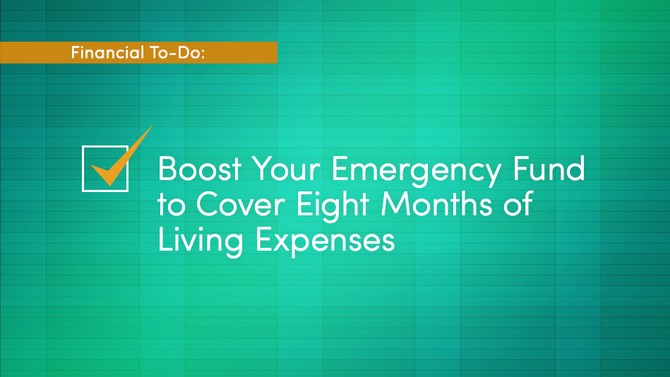
Illustration: David Wyffels
Why It's Important: By now I am sure you have started saving. The next step is to keep at it until you have at least eight months' worth of living expenses.
Do This Now: Go to FDIC.gov/edie for banks and NCUA.gov for credit unions to verify that your emergency fund is tucked away at an institution that is federally insured. Never invest your emergency savings in the stock market. Safe, not sorry, is all that matters.
Do This Now: Go to FDIC.gov/edie for banks and NCUA.gov for credit unions to verify that your emergency fund is tucked away at an institution that is federally insured. Never invest your emergency savings in the stock market. Safe, not sorry, is all that matters.
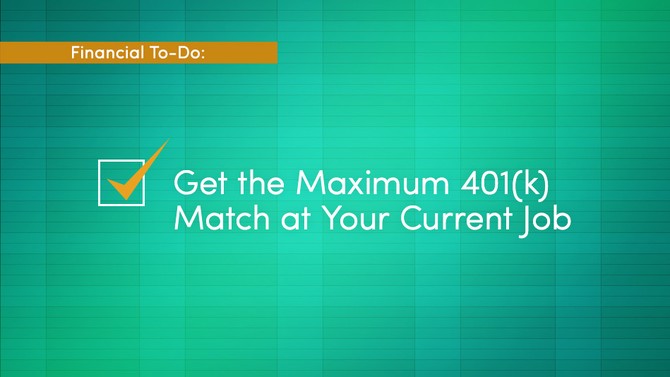
Illustration: David Wyffels
Why It's Important: If you left it to your company to auto-enroll you in the plan when you were hired, there's a good chance your contribution rate is too low to max out on the match.
Do This Now: Call your human resources department or the company that runs your plan; boost your contribution so you qualify for the max match.
Do This Now: Call your human resources department or the company that runs your plan; boost your contribution so you qualify for the max match.
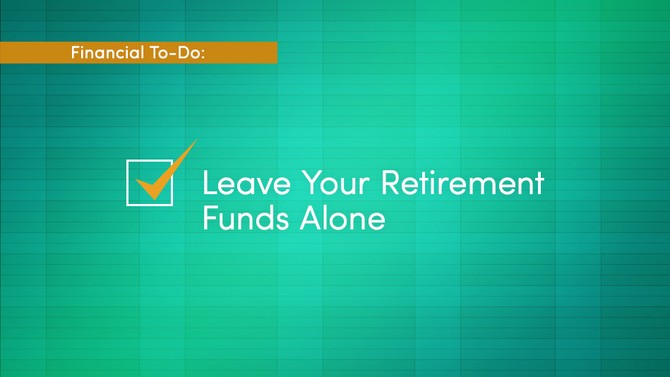
Illustration: David Wyffels
Why It's Important: Can't handle the mortgage? That's no reason to raid your retirement funds. When that money runs out, you'll still face foreclosure, but you'll have lost your retirement savings, too.
Do This Now: Don't cash out your 401(k) when leaving a job. In addition to an early withdrawal penalty (if you're under age 55), your shortsightedness will cost you future gains. Go to MoneyChimp.com and click on the Calculator tab. Under "current principal," input the value of your 401(k). Leave "annual addition" blank. For "years to grow," enter the difference between your age and 65. For "interest rate," use a conservative 5 percent. Calculate the future value. The difference between that and the current value is what you'd give up by cashing out.
Do This Now: Don't cash out your 401(k) when leaving a job. In addition to an early withdrawal penalty (if you're under age 55), your shortsightedness will cost you future gains. Go to MoneyChimp.com and click on the Calculator tab. Under "current principal," input the value of your 401(k). Leave "annual addition" blank. For "years to grow," enter the difference between your age and 65. For "interest rate," use a conservative 5 percent. Calculate the future value. The difference between that and the current value is what you'd give up by cashing out.
Published 05/11/2015
Please note: This is general information and is not intended to be legal advice. You should consult with your own financial advisor before making any major financial decisions, including investments or changes to your portfolio, and a qualified legal professional before executing any legal documents or taking any legal action. Harpo Productions, Inc., OWN: Oprah Winfrey Network, Discovery Communications LLC and their affiliated companies and entities are not responsible for any losses, damages or claims that may result from your financial or legal decisions.

